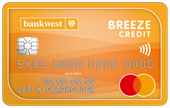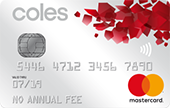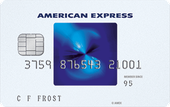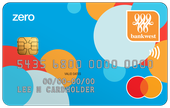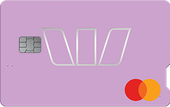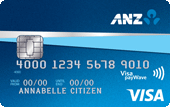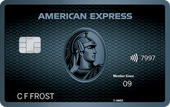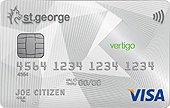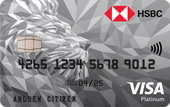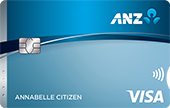
Low interest and fees.
What are first time credit cards?
Credit cards with low interest rates and minimal fees are ideal for first timer credit card holders, as they help minimise expenses while you become used to your card's features. Additionally, cards with lower credit limits and more accessible minimum income requirements can improve your likelihood of being approved.
There are millions of credit card accounts in Australia, according to the RBA. Their financial flexibility means you can extend your purchasing power today and settle the bill later. However, it's important for first timers to be aware of credit card pitfalls and how they can improve or mess up your credit score.

The low down.
Credit cards vs Buy Now, Pay Later services
Credit cards provide more flexibility compared to Buy Now, Pay Later (BNPL) services. Unlike BNPL, where payments are usually spread across a few instalments, credit cards give you access to a revolving line of credit, allowing you to spread payments over a longer period with more freedom. Credit cards help build a credit history, which is crucial for future financial applications, such as loans or mortgages. BNPL services do not generally contribute to your credit score, limiting their long-term financial benefits.
| Feature | Credit cards | Buy Now, Pay Later (BNPL) |
|---|---|---|
| How they work | Borrow funds up to a credit limit, repay over time. | Split purchases into instalments, usually fortnightly. |
| Interest charges | Typically high interest rates (up to ~20% p.a.) unless paid in full each month. | Interest-free, but late fees apply. |
| Fees | Annual fees, late fees, cash advance fees. | Late fees, account fees (some providers). |
| Credit check | Required for approval, impacts credit score. | Usually no credit check, but some providers report missed payments. |
| Repayment flexibility | Minimum monthly payments allowed; can revolve debt. | Fixed instalments with set due dates. |
| Spending limit | Higher limits (often $2,000–$50,000+). | Lower limits (typically $500–$3,000). |
| Acceptance | Widely accepted in Australia and overseas. | Accepted at select retailers, mostly online. |
| Impact on credit score | Can help or hurt your credit score based on repayments. | Usually doesn’t build credit, but missed payments may be reported. |
| Rewards and perks | Earn frequent flyer points, cashback, travel perks. | No rewards programs. |
| Use case | Large purchases, travel, rewards points, building credit. | Small, everyday purchases with short-term repayment. |

Expert opinion on choosing a beginner credit card

David Boyd, co-founder of Credit Card Compare, explains what you should look for if you are getting your first credit card.
When choosing a credit card for the first time, narrow down your options and carefully consider their terms and features. Things to look out for include low fees, low interest rates, and a set of criteria you qualify for so your application isn't immediately declined. Check your credit score before applying and hold off applying if it flags up issues that need to be addressed. Applying with a bad credit score because of recent missed payments or a default can impact your credit score and make your application more likely to be declined.

Ideal for beginners and young adults.
How to choose the best first credit card
- Interest rates. Compare the interest rates on different credit cards. Look for low introductory or competitive 0% purchase rates to save on interest charges should you not pay the balance in full.
- Fees. Consider annual fees, late payment fees, and foreign transaction fees. These can add up.
- Rewards programs. Which rewards program aligns with your lifestyle, spending habits, and preferences as a frequent flyer? If you are a Qantas and oneworld loyalist, then you might consider a Qantas Points-earning credit card over one that earns Velocity Points.
- Credit limit. Minimum and maximum credit limits vary between different cards. Choose one that suits your financial needs and pattern of spending.
- Additional features. Consider additional features such as travel insurance and airport lounge access that may benefit you.

The minimum requirements.
What is the eligibility criteria?
It's important to know the eligibility criteria before applying for a first-time credit card in Australia.
- Be at least 18 years old.
- Be an Australian citizen, permanent resident, or hold a valid visa.
- Most first time credit cards usually get an instant decision within 60 seconds.
- Have a regular income, though minimum income requirements are often lower for entry-level cards (as low as $15,000 per year).
- Have a good or clean credit history, though limited or no credit history may still be acceptable for beginner cards.

Expert opinion: What is the mistake people make most often?

Andrew Boyd, co-founder of Credit Card Compare explains what is the most common mistake beginners make when using their first credit card.
The most common mistake first-time credit card users make is failing to pay off their balance in full. This leads to high interest charges, which can quickly spiral into debt. Another mistake is applying for multiple credit cards at once, which can negatively impact your credit score

More than just credit.
Benefits of first timer credit cards for beginners and young adults
- Build credit history. Responsible credit card use can help first-timers establish a positive credit history, which is crucial for future financial choices such as applying for a home loan.
- Convenience. Credit cards offer a convenient payment method for online and in-store purchases. For example, travelling without one makes it tricky to check into a hotel.
- Security. Credit cards provide added security features such as fraud protection and the ability to dispute unauthorised charges. If you shop from a store that won't give you your money back, you can lodge a chargeback with the issuer.
- Rewards and perks. Many credit cards offer rewards points, cashback incentives, and other perks to cardholders. However, these are not typically the easiest to get approved for since they usually have a higher set of minimum criteria.

Get the most from your first credit card.
How to maximise the benefits with your first credit card
- Pay on time. Always pay your statement on time to avoid interest charges and build a good credit score.
- Stick to a budget. Set a monthly limit for how much you’ll charge to your card, and track your spending.
- Use interest-free days. Pay off your balance before the due date to take advantage of interest-free periods, which can be up to 55 days interest free.
